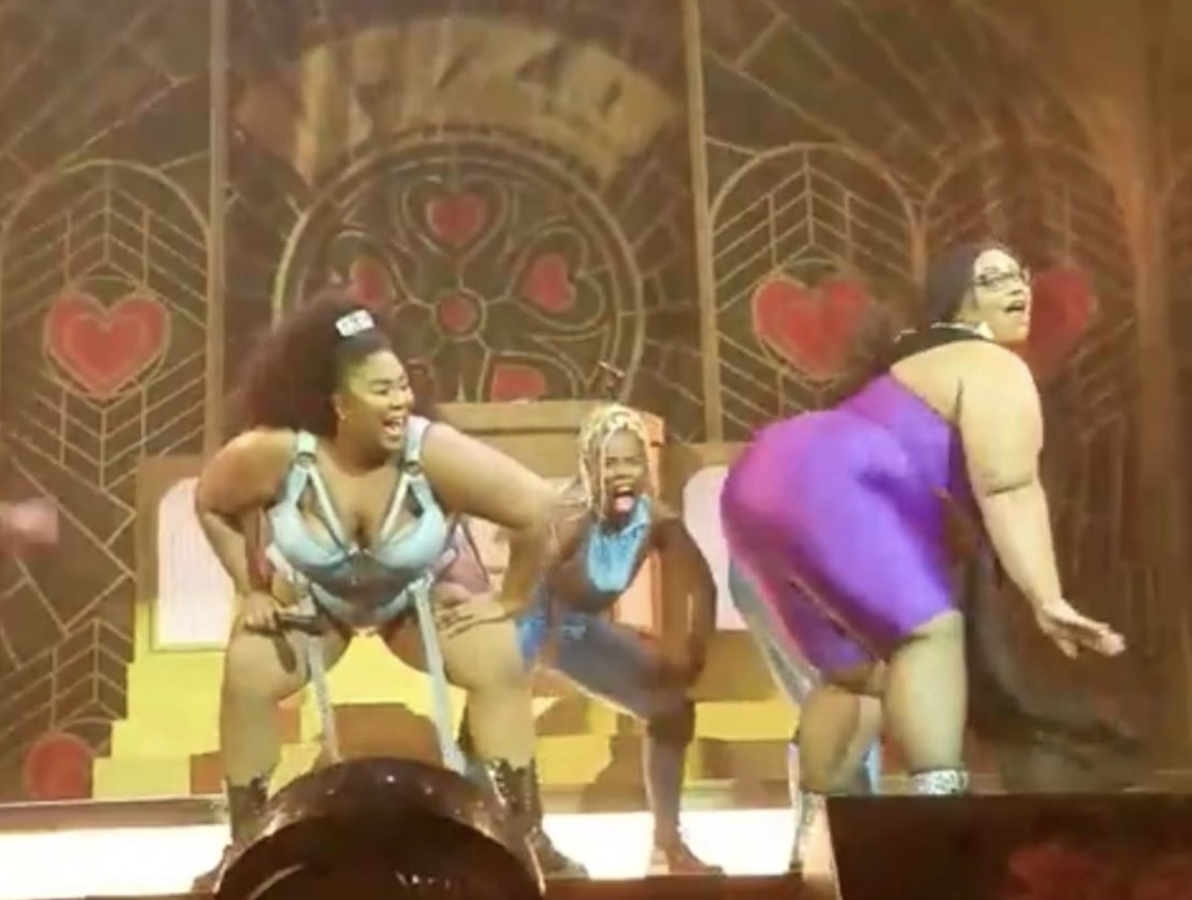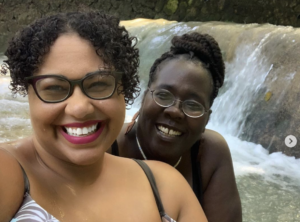Project BFF sat down with professor and author Sami Schalk to talk about the friendships in her life.
Project BFF: How do your friends feel about your mission/career? How do they support you and your work?
Sami: One of the ways I know I have a really good and supportive friend is that she’s someone who understands my dedication to my career. I’m someone who is child-free by choice, and I’ve really devoted my time to my career, to my writing and my teaching, to travel. My closest friends are just constantly happy for me, cheering me on. They’re on team Sami. They’re legitimately happy for me, even as what I’m doing is often very different from the life they’re living. The phrase that some of my friends and I use with each other is highest and best.
We’re constantly encouraging and supporting each other and being our highest and best selves, trusting that each of us knows what that is for ourselves and makes the right choices for ourselves. We support each other in doing that – it’s about letting people make the choices they want to make, knowing that not everyone is the same kind of ambitious or wants the same things out of life and that that’s okay. We can still support our friends making distinctly different choices from ourselves.
Project BFF: If you could be friends with one famous woman (alive now), who would that be?

Sami: I definitely want to be friends with Lizzo. I think we would get along quite well. We would just dance and hang out and talk shit about dudes.
We would have a really fabulous time, probably spending most of our time getting ready, and dancing, and then going out for 10 minutes and that’s it. Yeah, just go out long enough to be seen and get our picture taken!
I got to twerk with Lizzo when she was in Madison. I started a Twitter campaign to try to dance with her. I got pulled on stage and got to dance with her for about 30 seconds, a good amount of time. That’s the extent of it; I haven’t made contact with her since then.
I’ve been a fan of hers for years, but this past year she’s really just come into the spotlight. She’s become so symbolic for so many people, for good. For other folks, she is a symbol of change and culture they’re not comfortable with. The work she actually produces, the content she puts out in the world, is so incredible.
Project BFF: What advice would you give your 12-year old self about making friends throughout your life?
Sami: To not hold back on the things I like and the things I don’t like.
I spent a lot of time as a kid thinking, “Oh, all the girls like N Sync and Backstreet Boys. So, I should develop an interest in N Sync and Backstreet Boys.” I’d make up interests to match the interests of the people around me, rather than try to find what I like and then find people who like that thing. I spent a lot of time adjusting myself to try to fit in with other people and that doesn’t create real friendships. It’s built on this fake connection.
I’d tell myself to look for genuine connection, real things I have in common with someone. Focus on who do I actually like and have an interest in. And then see if they like me back.
That’s something I think 12-year-old me just couldn’t understand. As a kid I really felt that to be liked I had to change who I was, because I didn’t look and behave the way that most of the girls looked and behaved. I grew up in small town Kentucky and was the only person of color – or one of two – in my school from elementary to high school.
A really important thing I would tell to my twelve-year-old self, especially about to go into high school: Don’t lie about the things you like or don’t like. And don’t stay silent about the things you like or don’t. Especially if something you don’t like is happening. Just be honest about who you are and then if people like that, awesome. If not, try to move on and keep looking – there are more folks out there.
Project BFF: Do you think your 12-year-old self has anything she could tell you now about friendships?
Sami: The biggest thing I’m starting to do with friends is have fun together. I used to be really into planning really fun, basically day dates with my friends. We would all go to the zoo together, we’d all go to the mall or we plan big activities. Because I wanted to have fun.
As I’ve gotten older, a lot of my time with friends has become routine. We just do dinner and drinks, and we do dinner and drinks, and we do dinner and drinks, and we do dinner and catch up, and then we do dinner and drinks. So, now I’m trying to plan things and not just spend my planning energy, I guess, on romantic relationships and work. But plan fun friend things.
Recently I went to Vegas with my best friends from college; we hadn’t all four been together in five years. The purpose of the trip was to just go and have fun together. We went on a club crawl, we went to see the Chippendales show. It’s been a while since I’ve really purposefully made a friendship fun plan.
Project BFF: Social media was touted as a way to keep us connected. What is the impact you see that it’s had on friend relationships?
Sami: I work in Science Fiction studies and a big belief of mine is that technology in and of itself is not good or bad. It’s all about how we use it. Technology can be used for better and worse purposes.
The negative side of social media as a technology is that folks sometimes use it as an outlet to avoid direct confrontation and engagement, by calling people out when they’re in your own network. We’re not talking about calling out a celebrity who did something fucked up, but your friend who said something fucked up and you post something like: “I hate it when people say blah, blah, blah…”
Also, I think social media has encouraged a belief that somehow everything we post people are going to see and read. Which is not true, there are many ways the algorithm prevents us seeing everything people post. And people are using it to communicate indirectly with each other in our relationships.
The positive thing has been that social media really helps sustain long distance friendships. I’ve moved a lot because of work, since 2014 I’ve lived in Indiana, New York, New Jersey, and Wisconsin. So, a lot of my relationships are sustained through social media. It means I get to see what’s going on with people, and they get to see what’s going on with me. We share things with one another. We chat. In some ways it allows the sustaining of adult friendships that can be really useful.
It also means we aren’t required to do the same kind of checking in with each other, because we’ve seen it on social media. Instead of asking “What’s been going on with you?” my friends will already know some stuff. It can keep us connected if we’re conscious and purposeful about it. And if we use it to sustain our friendships, as a tool to help us stay connected to each other. It becomes a danger if we look at social media as a replacement for the work of sustaining friendships.
In particular, social media has been really useful for people with disabilities who might not be able to get out of their houses. It is actually a way of creating and sustaining communities and friendships. There’s an immediacy and connection to it now that I think is really useful for marginalized people, especially those of us who find it hard to find people like us – if we move away or can’t go out for a while, we want to stay connected to those good chosen few people we like.
Note: Conversation was lightly edited for clarity.
Dr. Sami Schalk is Associate Professor of Gender & Women’s Studies and author of Bodyminds Reimagined. She identifies as a fat Black queer woman. Follow her on Instagram and Twitter.

